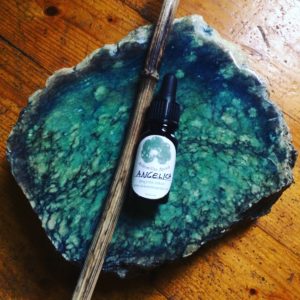
Angelica
As above – So below
![]()
Angelica is bitter, warming and aromatic.
It can be useful in treatment of swellings, inflammations and glandular indurations, particularly of the head and neck region. Good for circulation, for cold hands and feet. Used for fever.
It is good for anguish, spasms, nervous excitation and fatigue; calms excess in both the sympathetic and parasympathetic branches of the autonomic nervous system. It is good for PMS and excessive bleeding while menstruating.
Can be used for for arthritis and gout. Good for the liver, increases digestion and metabolism of oil and production of bile, hence increases digestion and nutrition. It relaxes the throat and makes it easier to take long deep breaths. It simultaneously opens the imagination and the mind when prana (life force through breath) can flow.
![]()
Angelica is an important Shamanic plant among the Saami people of the North.
In Native American herbalism it is referred to as a “Bear Medicine”. Just as the bear goes into hibernation through the winter, bear medicine usually relax the mind, open the imagination and bring people into dreamtime. Angelica certainly has this capacity.
Bears eats these roots upon awakening in spring to wake up, clear their throat and start rebuilding their mass.
![]()
I see Angelica as an embodiment of the Alchemical device “As above so below”.
The deep aromatic root and the umbrella-like flower full of starlike seeds are connected through a hollow stem, a channel connecting the heaven and the earth. This is one of the effects the Spagyric Tincture may have upon you – making you feel like this channel.
Angelica connects you with your guardian angel, or if you prefer to call it your higher self.
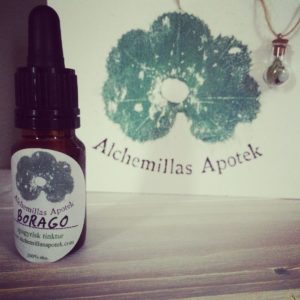
Borage
‘borage for courage’ is the rough translation of the old Latin verse “Ego borago gaudia semper ago”.
![]()
Borage is anti-inflammatory, demulcent, nutritive and cooling. It is giving tone to relaxed tissues like varicose veins. It is also used to soothe the body's mucous membranes. Borage can help ease arthritis and rheumatism.
![]()
Borage can be helpful to uplift and strengthen the spirits, especially in times of grief. It is also a great PMS-relief.
![]()
The blue starlike flowers reach an apex, coming to a singular focused point. Borage is excellent for individuals who are scattered in their communication, lack focus and clarity, and are unable to “get to the point”. It can also be useful for people who tend to “beat around the bush” and are not direct with their communication.
Most confusion that occurs in relationships is due to unclear communication and Borage is an excellent remedy to turn to in order to bring more direct, focused and clear communication that gets to the point.
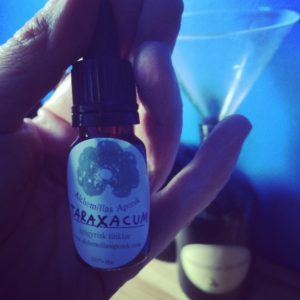
Dandelion
“Most of the dandelions had changed from suns into moons” – Vladimir Nabokov
![]()
The root of dandelion is cooling, strengthening for the liver and strengthening in general. Promoting the production of bile, strengthening the lymphatic system, cleansing for the blood and good for digestion.
Dandelion is one of the most important herbs for expelling toxins from the tissues of the body and is good to use in all cases of chronic inflammations for example inflammations of the skin and joints as well as rheumatism. Dandelion is excellent for a weak or overworked liver. It is good to use Dandelion to strengthen oneself after an illness or as a general spring cleaning tonic.
![]()
According to Ayurveda, anger accumulates in the liver and gall-bladder. Dandelion is a powerful plant in helping to let go of this anger so we don´t carry it inside us. It is a detoxifier that works on the emotional and mental being, as well as the physical. It is especially good for clearing out old anger that has not been processed, especially if the pattern was established in childhood.
The liver is the organ of transformation and inner alchemy.
![]()
Dandelion works on the solar plexus. The energy is dynamic and promotes body consciousness and freedom. It gives us the capacity to understand and express pain that seems beyond understanding. Dandelion helps us reclaim our innocence and to take responsibility for how we feel and act.
I believe that nature puts the medicines humans need in abundance right in their gardens, even growing through concrete, for a reason.
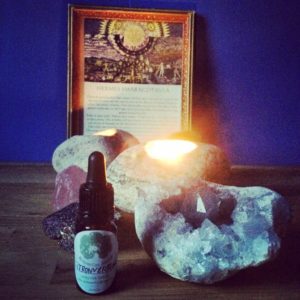
Lemon Verbena
When life gives you lemon verbena, make Chartreuse.
An alchemical recipe reached the religious order's headquarters at the Grande Chartreuse monastery, in Voiron, near Grenoble. It has since then been used to produce the “Elixir Végétal de la Grande Chartreuse”. Only two monks in a lifetime know the secret ingredients. Lemon verbena is one of them.
![]()
Antioxidant and strengthening for the immune system. Lemon Verbena reduces inflammation and fevers and may be beneficial for joint-pain, menstrual pain. Lemon verbena supports the digestive systems and may help to regulate appetite.
![]()
Lemon verbena stimulates the endocrine system, is reducing stress and nervous tension. It is uplifting and moves the spirit when one feels mentally stuck and calms down at the same time. It is nice to take in the early evening to wind down.
![]()
Lemon verbena has to do with the appetite for life. It may be helpful in clarifying intuitive insights and guidance, as well as feeling shielded and protected from negative or hostile energy sources. It helps one to continue to feel good no matter who is around.
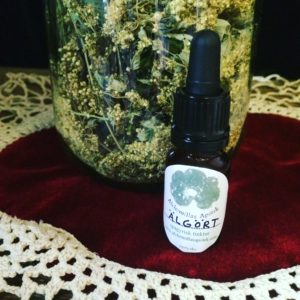
Meadowsweet
The aspirin of the druid.
![]()
Meadowsweet is good for ulcers, heart-burn and acid reflux. Meadowsweet is astringent and also anti-acid, as well as offering anti-inflammatory and pain relieving properties.
Meadowsweet contains salicylic acid which makes it a pain reliever, especially suited to stagnant pain (in a fixed location, possibly with a pounding sensation) and for symptoms of heat. Relieves muscular inflammation, headache, joint pain, rheumatic pain, fever, menstrual pain and gout.
![]()
Meadowsweet is a true normalizer of a badly functioning stomach. It regulates acidity and rectifies alkalinity. It calms internal excitation.
I have noticed that it makes you feel happy, so I think it is also calming heated internal states of anger and frustration.
![]()
Meadowsweet was also a sacred herb among the druids and it was a favorite strewing herb in the Middle Ages. They sprinkled it on the floors like aromatherapy.
The smell is almondy and very cheerful. Meadowsweet was the source aspirin came from. It possesses similar properties, but is non-toxic, cooling and soothes the stomach, rather than inflaming and irritating it like aspirin does.
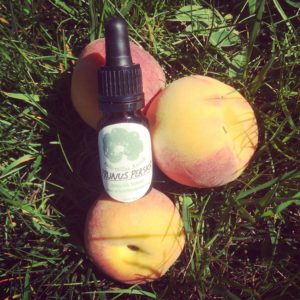
Peachleaf
“There are a whole lot of things in this world of ours you haven't started wondering about yet. ”
– Roald Dahl, James and the Giant Peach
![]()
The action of peachleaf moisturizing and cooling, helps when there is inflammation, inner heat and an overactive autoimmunesystem. Good in urineinfection when there is a burning sensation, morningsickness, dry caugh and allergy.
Peachleaf is suitable for those who easily get burned by the sun, have delicate skin and easily become red or get rashes.
![]()
Peachleaf is good for the restless, insomnia, worry and nervousness and is suitable for overactive children. Good for highly sensitive people.
![]()
In China it is believed that the peachtree possesses abundant vitality, more than any other tree and the peach is a symbol for longviety.
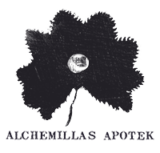
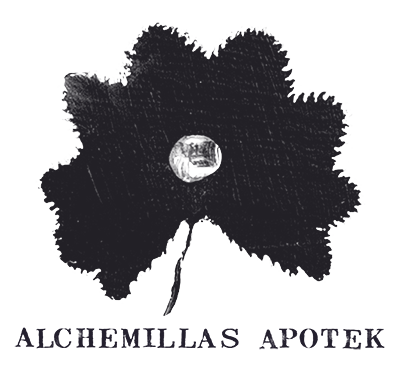

 English
English Svenska
Svenska